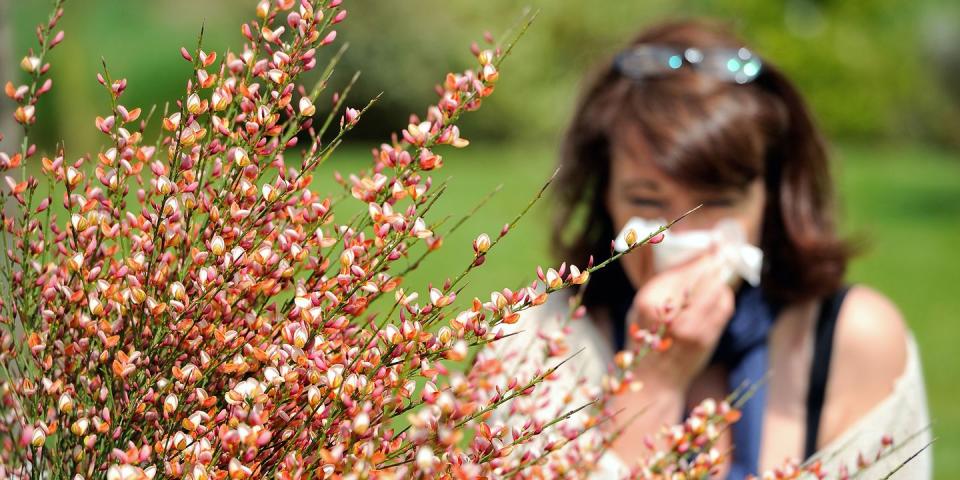Allergy Season Will Peak in Late April

The arrival of spring brings sunnier days, bursts of flowers, and for some, watery eyes, sneezing, and coughing. If you suffer from spring allergies, you may be in for a rough season, depending on where you live.
For the lucky ones down south in Florida and Georgia, the peak allergy season has already passed, according to AccuWeather. But for the rest of us living in other regions, it's just gearing up and may be delayed due to unusually wet and cold weather across the country.
Spring allergies are already making a comeback in the United States, as grass and tree pollen work their way south to north across the East: https://t.co/398LsNXCMf pic.twitter.com/cxG0tFbIb9
- AccuWeather (@breakingweather) March 17, 2018
For Southern residents from Texas across the Deep South to Virginia, the most intense part of the season will be in late April, while most other Northern states from the Midwest to New England and southern Vermont will see allergies worsen in mid- to late May.
While it's hard to predict exactly how rough it will be, experts think those down south will have it harder than most, while there could be a relatively low number of allergens in the air in the Midwest and Northeast.
Some experts believe the spring allergy season may be shorter but more intense this year, too. The unusually late snow we saw this year may delay pollination-but the pollen will come eventually and when it does, it may hit folks all at once.

The delay means "you're increasing the density of the pollen on a given day," SUNY College of Environmental Science and Forestry professor Don Leopold told Newsday. "It might seem like a more intense amount of pollen." And folks who spent much of the cold spring inside may struggle harder since their bodies haven't had time to get used to the growing amount of allergens outside.
Others believe it will be a relatively normal spring for allergy sufferers. "It might a little bit higher, AccuWeather meteorologist Alan Reppert told Time. But don't panic yet. "It doesn't look like it's going to be a rapid ramp-up to above average," he said. "We're looking at probably near-normal pollen levels for much of the Northeast into the Midwest also."
Certain foods, like berries, egg yolks, and omega-3-rich fish (think salmon and tuna), can also help curb symptoms. Still, it doesn't hurt to pack extra tissues to get you through the next few weeks.
(h/t Time)
You Might Also Like

